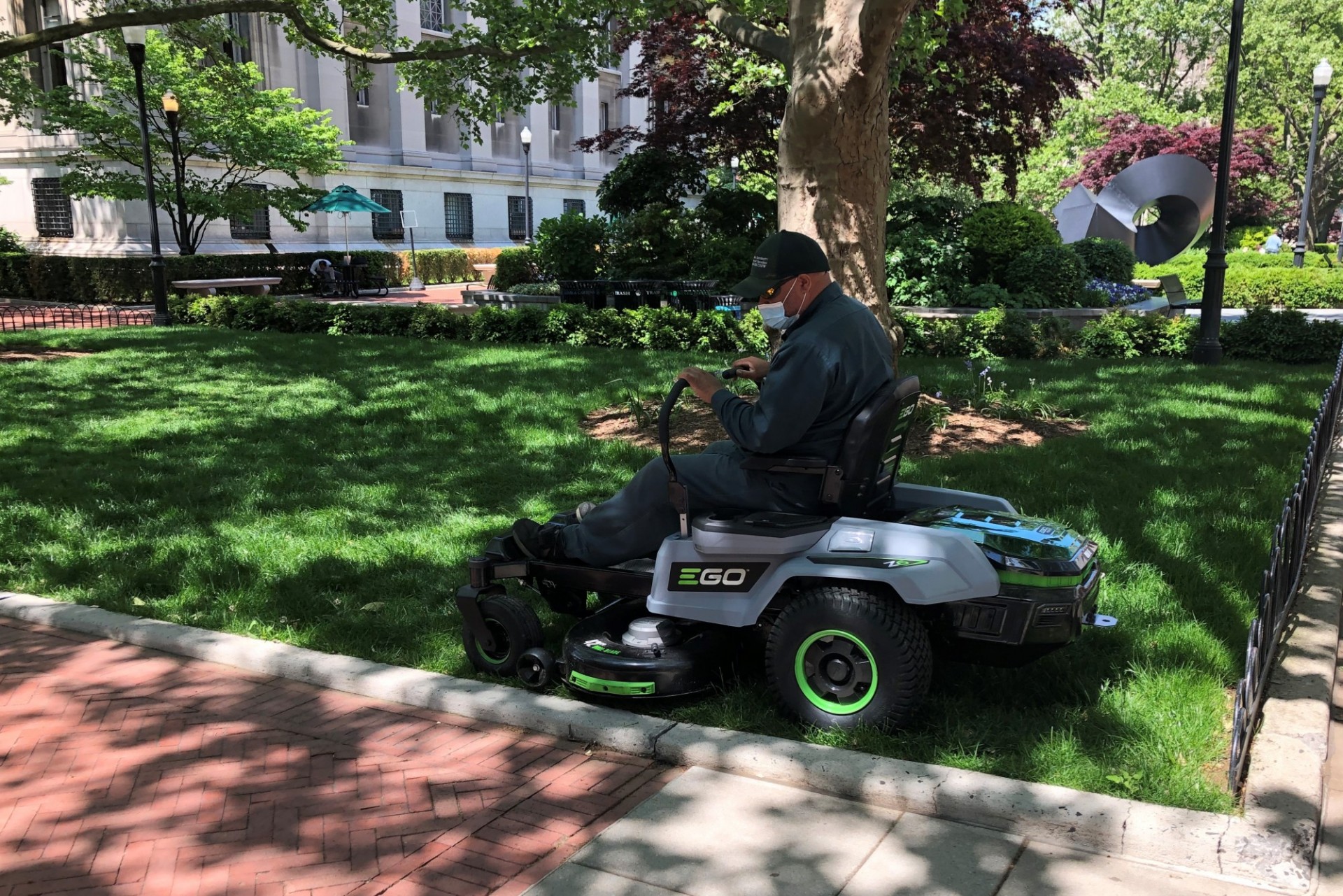Columbia’s Grounds team is now equipped with electric lawn and garden equipment to complete grounds work on the Morningside campus.
The team’s arsenal of electric equipment – including lawn mowers, leaf blowers, string trimmers, light duty power washers, and chain saws – can be used for the majority of grounds work performed, reducing the need for gasoline-powered equipment.
Using the electric equipment eliminates the need for gas and oil to power the equipment and its subsequent exhaust fumes, resulting in a reduction in greenhouse gas (GHG) emissions, one of Columbia’s main sustainability goals. Electric equipment is also lightweight, easy to maneuver, and runs at a lower volume, making it an ideal choice for the Grounds team who often performs work near classrooms, dormitories, and libraries.
The transition from gas to electric equipment first began in 2014 when two electric mowers were purchased for use at the Baker Athletics Complex. As battery-powered technology and reliability continued to advance, the Grounds team saw an opportunity to use electric equipment on the Morningside campus and began working on incorporating more electric equipment into their inventory.
“We are proud to have transitioned more than 60 percent of our grounds equipment to electric since this initiative began, and can now use all electric equipment during the spring and summer” said Rick Gonowrie, manager of waste management and fleet operations. “Electric equipment runs cleaner and at a much lower noise level, which is not only better for the environment, but for the operator and the campus community as well.”
While electric equipment is used for most of the work the Grounds team performs, gas-powered equipment is still used for large, heavy duty work that would be less efficient and more difficult to complete with electric equipment. These jobs include mowing South Lawns, trimming wet grass, felling a large tree, cleaning heavy debris, and mitigating potential hazards.
In addition to electric equipment, the Grounds team employs a host of other sustainable practices, including the use of mulching blades on large fields to recycle grass clippings to the turf; an automated irrigation system that regulates watering based on precipitation; 100 percent organic mulching as a sustainable approach to weed control and herbicide reduction; and more.
Columbia’s new Sustainability Plan 2030 outlines aggressive sustainability goals for its New York campuses, and has committed to reaching carbon neutrality by 2050 or sooner.

